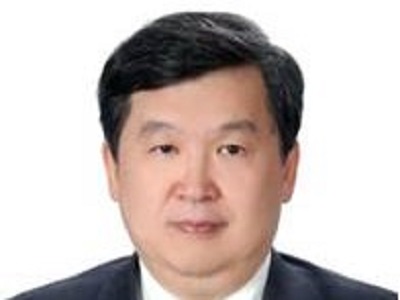
Prof Pen-Chi Chiang
Distinguished Professor, Graduate Institute of Environmental Engineering, National Taiwan University, Taiwan
Implementation of Green Chemistry Principles for Chemical Industries towards Sustainable Development Goals: The Use of Renewable Resources
Sustainable development goals (SDGs), the collection of 17 goals proposed by the United Nations in 2015, aimed to improve the world by tackling social, environmental and economic sustainability. Among SDGs, clean water and sanitation (SDG 6), affordable and clean energy (SDG 7), industry, innovation, and infrastructure (SDG 9), responsible consumption and production (SDG 12), and climate action (SDG 13) are related to the outcomes of impure water, clean energy, toxic chemicals, and climate change. Water scarcity affects more than 40 % of people around the world, and one in every four people would be negatively impacted by water scarcity in the future. In particular, contamination by toxic chemicals and global warming are the major contributors to global water pollution and scarcity, respectively. Therefore, green chemicals in accordance with green chemistry principles (GCP) is one of the business opportunities proposed by Business & Sustainable Development Commission in their flagship report “Better Business, Better World”. GCP are comprehensively developed and utilized in industrial management, governmental policy, educational practice and technological development around the world. To implement GCP practices into chemical industries, we proposed new categories of GCP including (1) pollution and accident prevention, (2) safety and accident assurance, and (3) energy and resource sustainability. The integration of GCP and chemical industry can be achieved by cleaner production, the continuous application of an integrated preventive environmental strategy applied to processes, products and services. This could increase the overall efficiency of energy and resources, while reducing risks to humans and the environment. We also illustrate several portfolio options of technologies for establishing waste-to-energy and –resource supply chains, such as biomass wastes utilization, towards circular economy system. Lastly, we provide several perspectives and prospects, including (1) developing green technologies for cleaner production, (2) establishing sustainable material management system, (3) building smart circular economy park, (4) promoting green economy business models, and (5) implementing multi-scale system analysis towards green engineering and sustainable technology.
Keywords: Circular economy; Toxic chemicals; Cleaner production; Prevention-assurance-sustainability; Business models.
CV: Dr Chiang began engaging in teaching and research activities in National Taiwan University since he obtained PhD degree from the Department of Civil Engineering, Purdue University,
Dr Chiang is known for his work in physicochemical treatment such as carbon adsorption, membrane and ozonation processes. In addition, he was also devoted to the research projects in the area of carbon capture technology, integrated watershed management, and sustainability for energy and industrial development. He has received numerous awards for research achievements, including Outstanding Research Award, National Science Council (1988-1999), Distinguished Chinese Institute of Engineer Research Award (1993), Outstanding Chinese Institute of Environmental Engineering Research Award (1993, 1995), Best Paper Award, Environmental and Water Resource Institute, ASCE (2005), and Best Paper Award, Chinese Institute of Environmental Engineering (2011, 2014). Dr Chiang has published more than 200 paper papers in the above area since 1990.